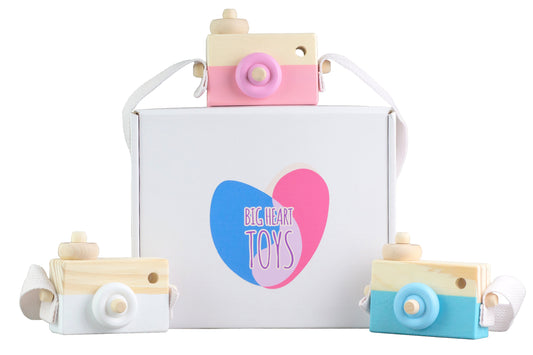Emotional intelligence is an invaluable skill; it helps with building relationships and navigating difficult situations. Recognizing and choosing strategies to work on can strengthen this skill and help your child respond to their emotions and the emotions of those around them with compassion and empathy.
To start, let’s talk about what emotional intelligence means.
What Is Emotional Intelligence (EQ)?
Differing from IQ (intelligence quotient), EQ (emotional quotient or emotional intelligence) is a term used to describe one’s ability to recognize their own emotions or the emotions of others and act appropriately.
Understanding emotions helps children recognize their feelings, determine why they may be feeling a certain way, and respond in a way that is kind to themselves and others. In addition, emotional intelligence also makes room for empathy — understanding how another person may be feeling.
While emotional intelligence is a key component of childhood development, some children need extra help with this skill. Everyone can grow and improve with time and practice, and no child should ever feel “not good enough” because they need help interpreting emotions and responding to them.
Emotional intelligence is reflected through behavior, social interactions, social-emotional understanding, decision-making, and relationships. It’s a combination of skills, including being aware of emotions, regulating emotions, and acting appropriately in a social setting.
Why Is Emotional Intelligence Important?
Emotional intelligence is crucial for healthy relationships and friendships, mental health, and career endeavors.
Below are some of the key ways that emotional intelligence impacts a child’s life.
Behavior
The way a child responds to their emotions affects how they behave. When a child has strong feelings and doesn’t understand why, their emotions may overflow, affecting their behavior. Sometimes, when feelings are overwhelming, a child might have an emotional outburst and need comfort and guidance from their loved ones.
Life throws challenges at everyone, and without emotional intelligence, it can be difficult to respond to and resolve those challenges.
Sometimes, these big feelings are a sign that something needs to change. For example, if something is wrong and needs to be addressed, your child’s feelings and behavior will let you know.
Socialization
Children who have a hard time interpreting and responding to their emotions may find it tough to make friends and maintain fulfilling relationships.
Many children struggle to see another person’s point of view in different situations. When one side of a friendship can’t see where the other is coming from, it can seem unfair, and the friendship or relationship may fade away. On the other hand, empathy and compassion can strengthen a relationship.
Additionally, you might notice that your child sometimes says the wrong thing at the wrong time and may unintentionally offend someone or hurt someone’s feelings. Emotional intelligence helps children understand how to react appropriately in awkward or complex situations.
Coping Skills
Coping skills are tricky to learn, and some children find it especially difficult to cope. When life gets hard, emotional intelligence makes it easier to respond without being overwhelmed by negative feelings.
When working through hard feelings, younger children often have a hard time being self-aware and being able to utilize strategies to self-regulate. This is where your supportive, encouraging presence as a parent can make a world of difference.
How Do I Know If Emotional Intelligence Is a Growth Area for My Child?
You might notice that your child seems confused when other children act a certain way or that your child often doesn’t immediately understand another person’s feelings. That’s okay — it just means emotional intelligence may be a growth area for them.
Adapting to change and new environments or situations may seem increasingly difficult for some kids. Kids who are change-averse may get scared when circumstances shift quickly and unexpectedly.
While all children may feel stress in times of change, some kids are affected by change more than others. This may be a sign that emotional intelligence is a growth area for your child.
Having a tough time with self-awareness is another sign that emotional intelligence is a potential growth area for your child. If one of your kids is being rude without realizing it or coming off as judgemental, they can unintentionally harm relationships with family members, peers, and, in the future, coworkers.
Finally, unpredictable behavior may signify that emotional intelligence is a growth area for your child. If a child is feeling big emotions without the ability to identify or address them, they may act explosively, demonstrating anger, extreme sadness, or withdrawal.
Explaining Emotional Intelligence to Children
If you are working to strengthen your child’s emotional intelligence, it may be beneficial to bring them into the conversation in a child-friendly way. If you are talking to a child about emotional intelligence, you may tell them that this skill means being thoughtful about their feelings and actions.
EQ can be especially challenging for children with learning disabilities and differences. However, working on this skill can become helpful for children when trying to explain their unique perspectives on the world.
Emotional intelligence gives children the ability to ask for help. This can be as simple as needing someone to talk to or to help them make a decision.
Social-emotional learning is a helpful way to teach children about self-awareness and self-management. It helps us make decisions, build relationships and friendships, and practice social skills. These skills are sometimes taught at schools but can be reinforced at home to help a child work on these skills.
Strategies To Strengthen Emotional Intelligence
When emotional intelligence is a growth area for your child, you can do certain things to encourage them and help them grow. Helping them build emotional confidence will ultimately help their future and well-being.
Developing a high EQ will help with social skills, making friends as a child, and even connecting with coworkers as an adult.
The goal of teaching emotional intelligence skills is to assist your child in recognizing and naming the emotion they are feeling, identifying what is making them feel this way, and regulating their emotions on their own.
So, how can we help our little ones strengthen their emotional intelligence?
Name the Emotion
One of the simplest ways to help your kids with emotional intelligence is to practice naming emotions with them.
You can model this skill yourself by telling your child, “I am feeling …”
Then, you can also work with them to practice naming their own feelings. You may offer options — asking them if they feel angry, sad, confused, or frustrated, for example — to help them along. Practicing this with your child will help them to identify emotions.
Model Self-Regulating Behavior
You can set an example for your kids by modeling emotionally intelligent behavior.
If something happens in your life that upsets you, you don’t need to totally shield your children from those circumstances. While we want to keep self-disclosure age-appropriate, telling your children that something happened (in a way they can understand) and explaining how the situation makes you feel is okay.
This validates feelings, shows them that what they may be feeling is normal, and demonstrates the process of identifying and managing emotions. You may even share that the situation makes you want to act a certain way, but show them that you aren’t, demonstrating emotional control.
You may say, “I am so upset that I want to yell and stomp my feet, but instead, I’m going to take a few deep breaths to help myself calm down so that I don’t overreact!”
Practice responding vs. reacting. This skill takes self-control and involves pausing when something unsettling happens. If something makes you angry or upset, pause, consider the situation, and respond with thoughtfulness rather than reacting impulsively.
If you practice this, your child will see you modeling emotional control and choosing to react appropriately.
Read Educational Stories
Reading social stories can help a child recognize emotions in others and discuss appropriate ways to act and react in various situations. These can teach skills and lessons that strengthen the understanding of emotions and why they occur!
Look for Socialization Opportunities
Socialization and reflection can strengthen a child’s EQ. Spending time observing and interacting with other children will teach them new skills and allow them time to practice conversational skills and empathy.
Reflecting with your child and talking about what went well in that social interaction can reinforce the skills they are observing. Review the various emotional cues and body language of the others there. In this way, parents can offer not only emotional support but also real-life guidance in navigating a variety of relationships.
Look for the Positive
Look for the positive in every situation!
When negative things happen, it can show strong emotional awareness, control, and intelligence to choose to look for a positive. If you are working with your child, you may write a list of the possible positive outcomes that could come from a negative situation.
The Bottom Line
Emotional intelligence helps children when trying to make friends, empathize, and navigate confusing social settings. It also makes it easier for kids to manage their own emotions, build self-awareness, and maintain their mental health. Helpful strategies like the ones listed in this article can help strengthen kids’ emotional intelligence.
Kids of all ages can benefit from help from an adult or parental figure to coach them through these strengthening exercises. Every kid needs help and guidance when it comes to big feelings, and no child should have to deal with these feelings on their own.
Take comfort in knowing you can help your kids grow their emotional intelligence and become more confident overall! Emotional intelligence is a skill that can be built with help and encouragement from parents like you.
Sources:
How to Improve Your Emotional Intelligence | Professional Development | Harvard DCE
Improving Emotional Intelligence (EQ) | HelpGuide.org
IQ | APA Dictionary of Psychology
How to Help Kids Cope With a Fear of Change | Verywell Family






